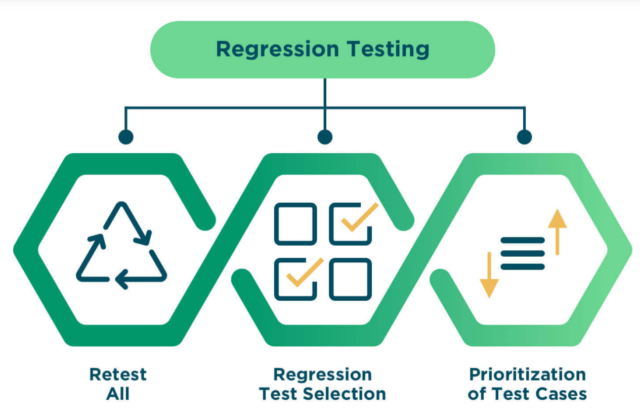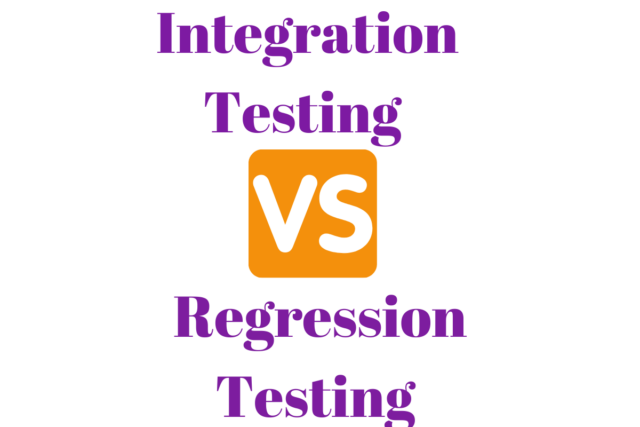Software development is one of the most complex processes as the developers and testers have to go through multiple iterations to ensure the highest quality of the result. In the software development process, there are primarily three steps namely development, testing, and production. The testing phase is one of the most important steps as it ensures that the outcome is as expected.
In the early years, the developers used to verify the performance of the application with complete manual test cases. However, with the rising complexity, it became obsolete to continue these testing practices. Currently, developers are using automation testing to quickly verify the quality of complex modern apps. Regression testing is an important part of the application testing lifecycle that plays a critical role in determining the proper functioning of the result.
With this article, we will take a detailed look at all the basics of regression testing. We’ll also try to understand how this testing process plays a vital role in ensuring the proper quality and stability of the modern application. Finally, we’ll wrap up our discussion with some of the best tools and platforms that the developers must integrate into their test bench to improve the quality of the regression test cases.
The Basic Idea of Regression Testing

In simple terms, we can define regression testing as a process of retesting an application after some modifications have been made in the core framework. The primary goal of this process is to ensure that these modifications do not have any negative impact on the existing elements of the application. Regression testing is an important process when the developers are working on applications that go through a continuous updating process.
Some of the best examples are eCommerce apps, banking apps, and even health apps. Some of the features covered by regression testing involve bug testing, feature enhancement, or the addition of new features to the application. With the help of regression testing, the developers can also verify that the combination of new and old features does not simultaneously slow down the overall performance and speed of the application.
Regression testing consists of multiple test cases that are targeted at different elements of the web application. The combined effort of all these test cases ensures that the application is functional and continues to act as expected. With the help of regression testing, the developers can also ensure the proper synchronization of all the new and old elements of the application. We can easily say that regression testing is an important part of the software development life as it ensures that none of the code changes harm the app function. With the help of regression test cases, the developers can also ensure the application is stable and ready to be released to the open world.
Types of Regression Test Cases

There are various types of regression test cases the developers can perform on the application. These test cases will depend on the type of modification that the developers are trying to test. Based on our analysis some of the most famous types of regression test cases are as follows:
Unit Regression Testing: For ease of the testing process, each element of a web application is often separated for testing and is known as a unit. So in unit regression testing, the developers have to verify the proper performance of each element and ensure that it does not hamper the functioning of the entire application.
1. Partial Regression Testing: While executing partial regression testing, the developers have to verify the proper performance of the subset of a test case or a specific area of the software that has been affected due to the changes. The primary motive of this process is to ensure that all the targeted areas of the application are functioning properly even after the integration of the desired changes.
2. Full Regression Testing: As the term suggests, full regression testing is a process of verifying the performance of the entire application after implementing the changes in the core framework. The main aim of this process is to ensure that the entire application has adopted the changes and synchronized them with the old elements. This is one of the most important processes to help the developers to provide the best performance to the customers.
3. Selective Regression Testing: Selective regression testing is the process of choosing a particular element or test case of the application and running it. Selective regression testing is often referred to as customized regression testing as it helps the developers to customize the regression test cases according to their requirements. It is a very important feature when developers are working on complex applications consisting of thousands of different elements.
Benefits of Regression Testing

To properly understand regression testing’s role in software stability and functioning, we can analyze some of the major benefits of executing regression test cases. Based on our understanding and research, some of the major advantages of initiating controlled regression test cases are as follows:
1. Regression testing has a critical role in verifying the proper quality of the application. Regression testing helps the developers to verify the stable performance of the application irrespective of the changes. It ensures that there are no bugs and glitches in the final build of the app. So, we can easily say that with regression testing the developers can ensure that there will be no crashes or any unexpected errors when the app is released to the end users. Thus we can also say regression testing has a critical role in maintaining a positive image for the company.
2. Regression testing has a critical role in massively reducing the risk of software failure. This is because while executing regression test cases the developers ensure that every element present in the application is functional and working as intended. So there will be no unexpected errors as the software moves to the production phase. Thus, it ensures that with the proper execution of regression test cases, the developers will be able to deliver the final application during the target time. It also helps to eliminate unnecessary stress or hassle for the developers and testers.
3. Since regression test cases help the developers to eliminate the risk of any unnecessary bugs and errors, the developers do not have to test the application every time before the final release. Thus regression testing has a critical role in reducing the required time and resources for developing companies. Moreover, the developers can also use the same regression test cases when they will be releasing a future update to the application. Moreover, for the proper execution of regression test cases, the developers do not need the integration of any third-party resources or tools. Thus, it is very easy to implement regression test cases even for individual creators and small companies.
4. It is a very simple process to automate the regression test cases. By automating the regression cases, the developers can eliminate the headache of manually conducting the processes after every update to the application. The developers and testers in turn can use this excess time to develop critical features that can improve the functioning of the application in a future update. With the help of the integration of automation testing, app developing companies can also run the test cases 24 hours around the clock. So, the integration of regression testing and test automation can critically improve the efficiency and quality of the final app.
5. Regression testing also helps developers to eliminate any form of security risk while handling sensitive user data. This is a very important factor for certain applications like e-commerce apps, banking apps, and health apps. A critical bug in the application can massively hamper the security of user data. Since regression testing ensures that all of these errors are addressed before the app comes to the market, the users can safely store their data on the applications.
Integrating Platforms and Tools in Regression Test Cases

Tools and platforms are one of the most important features in the modern application development lab cycle. This is because modern app testing processes require thousands of different features and integrations that are often impossible for human developers. On the other hand, these platforms and tools can easily integrate and improve the quality of the applications.
For instance, cloud platforms eliminate the hassle of having a physical device lab for executing the test cases. This is because with these platforms the developers can execute the test cases on the web and achieve similar test results. Cloud platforms also help developers to remove the geolocation barriers from application test cases and initiate them from anywhere on the globe. We can further improve our knowledge of cloud platforms by shifting our focus towards LambdaTest as our reference point:
For the initial introduction, we can say that LambdaTest is a modern cloud platform that helps developers to initiate secure cross-browser test instances on web apps. After analyzing the modern app development market, we can easily say that cross-browser testing is a new standard for ensuring that you provide the best outcome to your customers.
This is because, with the help of cross-browser test cases, the developers can ensure the stable performance of the application irrespective of the user shift in the browser version, entire device specifications, or the operating system. With LambdaTest, the developers can also implement parallel test execution for improving the efficiency of test execution by almost 15 times. LambdaTest can execute automation test cases from multiple frameworks like Cypress, Selenium, and Playwright.
Lastly, the integration of real devices with the existing thousands of simulation software helps the developers improve the accuracy of all the test cases conducted with this platform.
The Conclusion
The goal of this article was to enlighten new developers and testers about the importance of proper regression test cases on modern applications. Since all the applications rely on a smooth automation process, regression testing plays a vital role in this step. Moreover, we are moving towards an app development market that will be completely dominated by automation testing standards. So, app developers need to keep themselves updated with all the new additions in this segment.
It will help them to improve the quality of the apps and maintain their company’s position in this competitive market. Lastly, app companies also have a vital role in this segment as they can conduct various seminars and awareness campaigns to spread the required knowledge. It is also important to choose the correct tools that can complement your testing habits.








